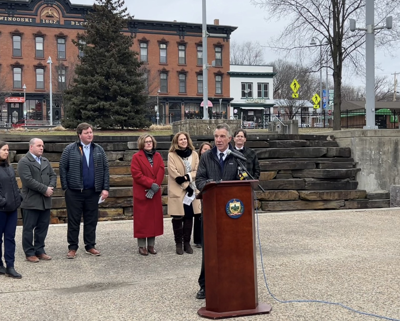(The Center Square) — Vermont Gov. Phil Scott is cautioning lawmakers about advancing a clean energy bill he says could cost consumers more than $1 billion over the next decade.
Scott, a Republican, said the higher costs for energy consumers would come from "a $100 million payroll tax passed by the Legislature, a 20% increase in DMV fees and potentially thousands of dollars more a year for the Legislature’s clean heat standard."
“As Vermonters stare down an enormous increase in property taxes ... the last thing Vermonters can take is the risk of another billion dollars of costs being imposed on them by this Legislature," he said in a statement. "There is clearly a more affordable and equitable alternative to H.289. We can and should do better."
Scott said the state Public Service Department conducted a "thorough" 18-month public engagement process "to understand Vermonters’ priorities for our clean and renewable electricity supply" and came up with a plan that would make progress toward meeting emissions reductions required by the Global Warming Solutions Act.
"The cost of the Department’s proposal is projected to be substantially lower than the billion-dollar price tag that H.289 has been shown to potentially carry."
Scott said the bill's latest iteration, which "had a lot of input from utilities, special interests, and their lobbyists, did not solicit policy input directly from Vermonters themselves."
"Nor was there any transparent consideration of the Department’s public engagement work," he added.
Scott's pushback comes as Vermont lawmakers are expected to vote on a bill to expand the state’s renewable energy portfolio, requiring the state's utilities to source 100% of their power from wind, solar and other renewable energy by 2030, among other provisions.
Vermont already boasts one of New England's "cleanest" energy grids because of its heavy reliance on Canadian hydropower. Electricity production from the state's power plants only accounts for about 2% of the state’s total carbon emissions. But the state still relies heavily on fossil fuels trucked to homes and businesses.
Last year, Scott vetoed a climate change bill requiring the state’s heating oil, propane and natural gas dealers to reduce the greenhouse gas emissions from the fuels they sell. However, the Legislature's Democratic supermajority overrode Scott's objections to the bill.








